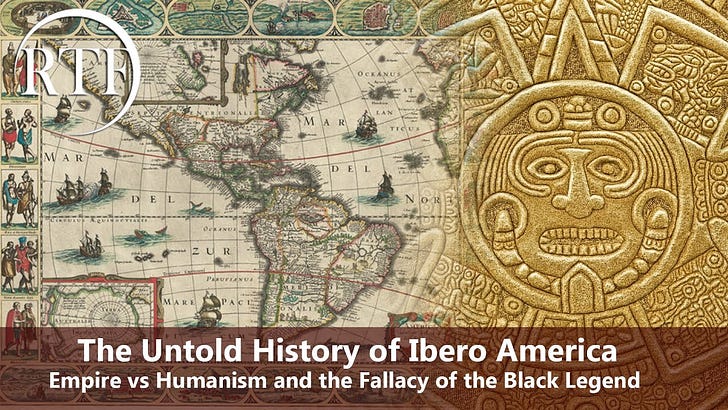During the mid-19th century a revolutionary struggle swept across Ibero-American nations and in the course of several decades monarchical systems of empire that had established themselves across the Americas began to lose their hold on power and a new system of republics were instituted.
Certainly this movement cannot be said to be bad as the ideals of “self-government”, “inalienable rights” and the “consent of the governed” contained in these republican struggles are preferable to systems of hereditary power… but the question remains: Why was the hand of British Intelligence so often found helping these anti-spanish revolutionary groups?
Were these revolutionary movements as pure as we are told? Could something better have occured had anglo-American imperial intrigue not subverted many of these movements?
Similarly, it has become commonplace to label everything done under spanish/portuguese rule prior to the age of revolutions to be entire evil and rapacious.
Certainly it cannot be argued that great evils were not done under the helm of such empires, but in embracing such black legends that paint everything pre-revolutionary as totally evil with no redeeming value to be found, are we not also missing the virtuous struggles by Christian humanist movements who fought to do great works of good that reverberate to this day?
In this Rising Tide Foundation lecture which I had the pleasure of hosting, Adam Sedia sheds new light on Ibero American history as you’ve never seen it beginning with the fight between oligarchical vs Christian humanist factions of Spain during the days of Columbus and onward to our present age.
To participate in live weekly events, don’t forget to upgrade to a paid subscription now




Dear Mr Ehret:
Surely you are familiar with the work of Philip Powell.
https://en.wikipedia.org/wiki/Philip_Wayne_Powell
Very interesting book on Spanish America
https://www.google.com/search?q=philip+powell+the+tree+of+hatred
Regards.